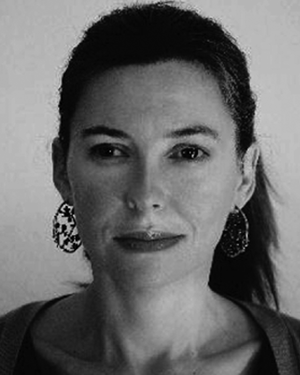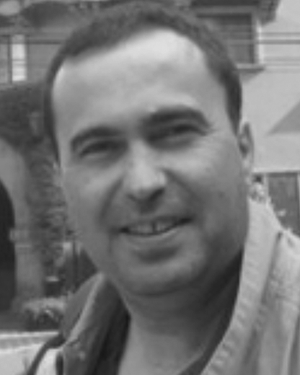Abstract:
This article introduces a set of teaching strategies to enhance second language learning for students with Down syndrome (DS) enrolled in an English course covering mater...Show MoreMetadata
Abstract:
This article introduces a set of teaching strategies to enhance second language learning for students with Down syndrome (DS) enrolled in an English course covering material from the first two years of primary school. A set of instructional support strategies has been defined and integrated into an online learning software, developed ad hoc to teach the basic vocabulary of the English subject syllabus of the two first courses of primary school. A controlled experiment was carried out with 20 students with DS, who were divided into two groups: control and experimental. The control group was given a simplified version of the software, while the experimental group had access to the complete software with personalized instruction. Prior to the experiment, all participants undertook the same level test (pretest) in order to assess their initial knowledge level of English. After finishing the learning stage, a posttest was provided to the students to assess their learning. In both groups, results in the posttest were consistently better than in the pretest, supporting the positive effect of the learning software as an instructional tool. In addition, learning gains were significantly higher in the experimental group, that used the proposed instructional aids.
Published in: IEEE Transactions on Learning Technologies ( Volume: 17)
Funding Agency:

Universidad Católica de Valencia San Vicente Mártir, Valencia, Spain
Cristina Cunha-Pérez received the B.B.A. degree in business administration and tourism from the National Distance Learning University (UNED), Madrid, Spain, in 2002, the M.Ed. degree in teaching in secondary schools, vocational training, and language centers (English specialty), the M.Ed. degree in special education for disabilities, the PGCert degree in teaching and learning in higher education, and the Ph.D. degree in e...Show More
Cristina Cunha-Pérez received the B.B.A. degree in business administration and tourism from the National Distance Learning University (UNED), Madrid, Spain, in 2002, the M.Ed. degree in teaching in secondary schools, vocational training, and language centers (English specialty), the M.Ed. degree in special education for disabilities, the PGCert degree in teaching and learning in higher education, and the Ph.D. degree in e...View more

Departament d'Informàtica, Universitat de València, Valencia, Spain
Miguel Arevalillo-Herráez received the first degree in information systems from the Technical University of Valencia, Valencia, Spain, in 1993, the B.Sc. degree in computing, the PgCert degree in teaching and learning in higher education, and the Ph.D. degree in computing and engineering from Liverpool John Moores University, Liverpool, U.K., in 1994 and 1997, respectively.
In 1997, he gained accreditation as a Teacher in ...Show More
Miguel Arevalillo-Herráez received the first degree in information systems from the Technical University of Valencia, Valencia, Spain, in 1993, the B.Sc. degree in computing, the PgCert degree in teaching and learning in higher education, and the Ph.D. degree in computing and engineering from Liverpool John Moores University, Liverpool, U.K., in 1994 and 1997, respectively.
In 1997, he gained accreditation as a Teacher in ...View more

Departament de Didàctica de la Matemàtica, Universitat de València, Valencia, Spain
David Arnau received the degree in physics and the Ph.D. degree in educational mathematics from the University of Valencia, Valencia, Spain, in 1993 and 2010.
He taught mathematics and physics at the secondary level for 13 years. At present, he is a Full Professor with the Department of Didactics of Mathematics, University of Valencia. His research interests include educational algebra and the development of interactive le...Show More
David Arnau received the degree in physics and the Ph.D. degree in educational mathematics from the University of Valencia, Valencia, Spain, in 1993 and 2010.
He taught mathematics and physics at the secondary level for 13 years. At present, he is a Full Professor with the Department of Didactics of Mathematics, University of Valencia. His research interests include educational algebra and the development of interactive le...View more

Universidad Católica de Valencia San Vicente Mártir, Valencia, Spain
Cristina Cunha-Pérez received the B.B.A. degree in business administration and tourism from the National Distance Learning University (UNED), Madrid, Spain, in 2002, the M.Ed. degree in teaching in secondary schools, vocational training, and language centers (English specialty), the M.Ed. degree in special education for disabilities, the PGCert degree in teaching and learning in higher education, and the Ph.D. degree in education from the Catholic University of Valencia (UCV), Valencia, Spain, in 2010, 2012, 2013, and 2017, respectively.
Since 2001, she has been with the UCV, currently as a Full Professor with the Transversal Department of English Language. Her research interests include improving the teaching and learning of a second language, particularly learners with special needs, and using interactive learning systems.
Cristina Cunha-Pérez received the B.B.A. degree in business administration and tourism from the National Distance Learning University (UNED), Madrid, Spain, in 2002, the M.Ed. degree in teaching in secondary schools, vocational training, and language centers (English specialty), the M.Ed. degree in special education for disabilities, the PGCert degree in teaching and learning in higher education, and the Ph.D. degree in education from the Catholic University of Valencia (UCV), Valencia, Spain, in 2010, 2012, 2013, and 2017, respectively.
Since 2001, she has been with the UCV, currently as a Full Professor with the Transversal Department of English Language. Her research interests include improving the teaching and learning of a second language, particularly learners with special needs, and using interactive learning systems.View more

Departament d'Informàtica, Universitat de València, Valencia, Spain
Miguel Arevalillo-Herráez received the first degree in information systems from the Technical University of Valencia, Valencia, Spain, in 1993, the B.Sc. degree in computing, the PgCert degree in teaching and learning in higher education, and the Ph.D. degree in computing and engineering from Liverpool John Moores University, Liverpool, U.K., in 1994 and 1997, respectively.
In 1997, he gained accreditation as a Teacher in HE by the Staff and Educational Development Association (SEDA) and became a Senior Lecturer at Liverpool John Moores University. In 1999, he left to work in the private industry for a one-year period and came back to University in 2000. He was the Program Leader for the computing and business degrees at the Mediterranean University of Science and Technology until 2006. From then on, he works for the University of Valencia, Valencia, currently as a Full Professor. His research interests include educational technology and applied artificial intelligence.
Miguel Arevalillo-Herráez received the first degree in information systems from the Technical University of Valencia, Valencia, Spain, in 1993, the B.Sc. degree in computing, the PgCert degree in teaching and learning in higher education, and the Ph.D. degree in computing and engineering from Liverpool John Moores University, Liverpool, U.K., in 1994 and 1997, respectively.
In 1997, he gained accreditation as a Teacher in HE by the Staff and Educational Development Association (SEDA) and became a Senior Lecturer at Liverpool John Moores University. In 1999, he left to work in the private industry for a one-year period and came back to University in 2000. He was the Program Leader for the computing and business degrees at the Mediterranean University of Science and Technology until 2006. From then on, he works for the University of Valencia, Valencia, currently as a Full Professor. His research interests include educational technology and applied artificial intelligence.View more

Departament de Didàctica de la Matemàtica, Universitat de València, Valencia, Spain
David Arnau received the degree in physics and the Ph.D. degree in educational mathematics from the University of Valencia, Valencia, Spain, in 1993 and 2010.
He taught mathematics and physics at the secondary level for 13 years. At present, he is a Full Professor with the Department of Didactics of Mathematics, University of Valencia. His research interests include educational algebra and the development of interactive learning environments for the teaching and learning of word problem-solving.
David Arnau received the degree in physics and the Ph.D. degree in educational mathematics from the University of Valencia, Valencia, Spain, in 1993 and 2010.
He taught mathematics and physics at the secondary level for 13 years. At present, he is a Full Professor with the Department of Didactics of Mathematics, University of Valencia. His research interests include educational algebra and the development of interactive learning environments for the teaching and learning of word problem-solving.View more


